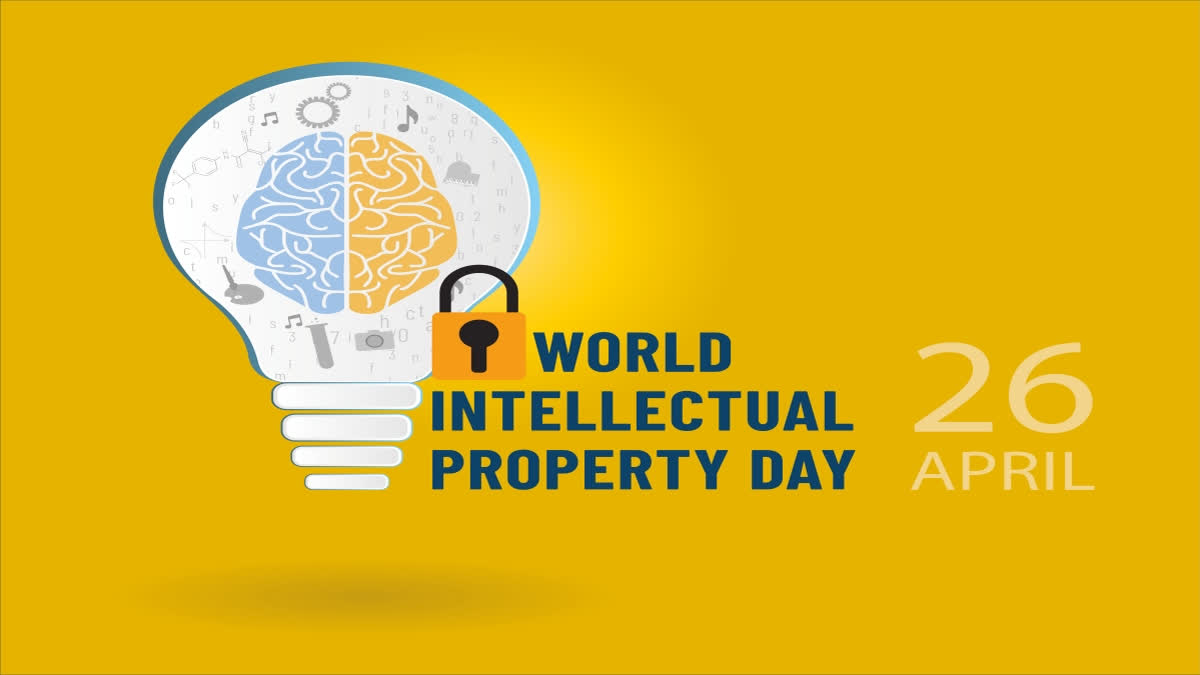Hyderabad: Every year World Intellectual Property (IP) Day is celebrated on April 26. The day was established by the World Intellectual Property Organization (WIPO). The day is dedicated to promoting the role of intellectual property (IP) in stimulating innovation and creativity.
World IP Day emphasises the importance of a balanced IP system to recognise and reward inventors and creators for their work and ensure that society benefits from their creativity and ingenuity. IP rights enable researchers, inventors, businesses, designers, artists and others to legally protect their innovative and creative outputs and secure economic returns from them.
The official theme for World Intellectual Property Day 2024 is 'IP and the SDGs: Building Our Common Future with Innovation and Creativity'.
World Intellectual Property Day 2024 is an opportunity to explore how IP encourages and can amplify the impact of the innovative and creative solutions we need to build our common future.
History of World Intellectual Property Day:
In a statement to the 33rd Session of the Assemblies of the Member States of WIPO in September 1988, the Director General of the National Algerian Institute for Industrial Property (INAPI) suggested the introduction of an International Intellectual Property Day. On 9 August 1999, in a letter from Jiang Ying, Commissioner of the State Intellectual Property Office of the People's Republic of China, the Chinese delegation proposed that WIPO's 30th founding anniversary (26 April) be recognised as "World Intellectual Property Day" as an annual event.
In October 1999, at its 26th session, the General Assembly of WIPO approved the idea of declaring a particular day as World Intellectual Property Day.
What is Intellectual Property?
Intellectual property (IP) refers to creations of the mind, such as inventions; literary and artistic works; designs; and symbols, names and images used in commerce. IP is protected in law by, for example, patents, copyrights and trademarks, which enable people to earn recognition or financial benefit from what they invent or create. By striking the right balance between the interests of innovators and the wider public interest, the IP system aims to foster an environment in which creativity and innovation can flourish.
World Intellectual Property Organization (WIPO) :
WIPO is a specialised agency of the United Nations that works to promote the protection and advancement of intellectual property worldwide. The WIPO Convention, which came into force in 1970, provides a framework for cooperation among member states in the areas of intellectual property law, the registration of intellectual property, and the protection of intellectual property rights. WIPO became a specialised agency of the United Nations in 1974. In addition to the WIPO Convention, WIPO also provides a range of other services and resources that aim to promote intellectual property awareness and promote the benefits of intellectual property protection.
India and WIPO:
India, the country with the world's second-largest population, became a member of WIPO in 1975 and is currently party to six treaties administered by WIPO, namely, the WIPO Convention (1975), the Paris Convention (1998), the Berne Convention (1928), Patent Cooperation Treaty (1998), Phonograms Convention (1975) and Nairobi Treaty (1983), Nice Agreement (2019), Locarno Agreement (2019), and Vienna Agreement (2019).
India has ranked 42nd among 55 leading global economies on the International IP Index 2023 with an overall score of 38.64 per cent. The United States ranks first in the 2023 index, followed by the United Kingdom and France.
India's size and economic influence are growing on the world stage. India is poised to become a leader for emerging markets to transform their economies through IP-driven innovation India has taken steps to improve enforcement against copyright infringement and provide a best-in-class framework to promote better understanding and use of IP assets.
The top 10 economies in the world for IP rights are as follows:
- United States (95.48%)
- United Kingdom (94.12%)
- France (93.12%)
- Germany (92.46%)
- Sweden (92.12%)
- Japan (91.26%)
- Netherlands (91.24%)
- Ireland (89.38%)
- Spain (86.44%)
- Switzerland (85.98%)



